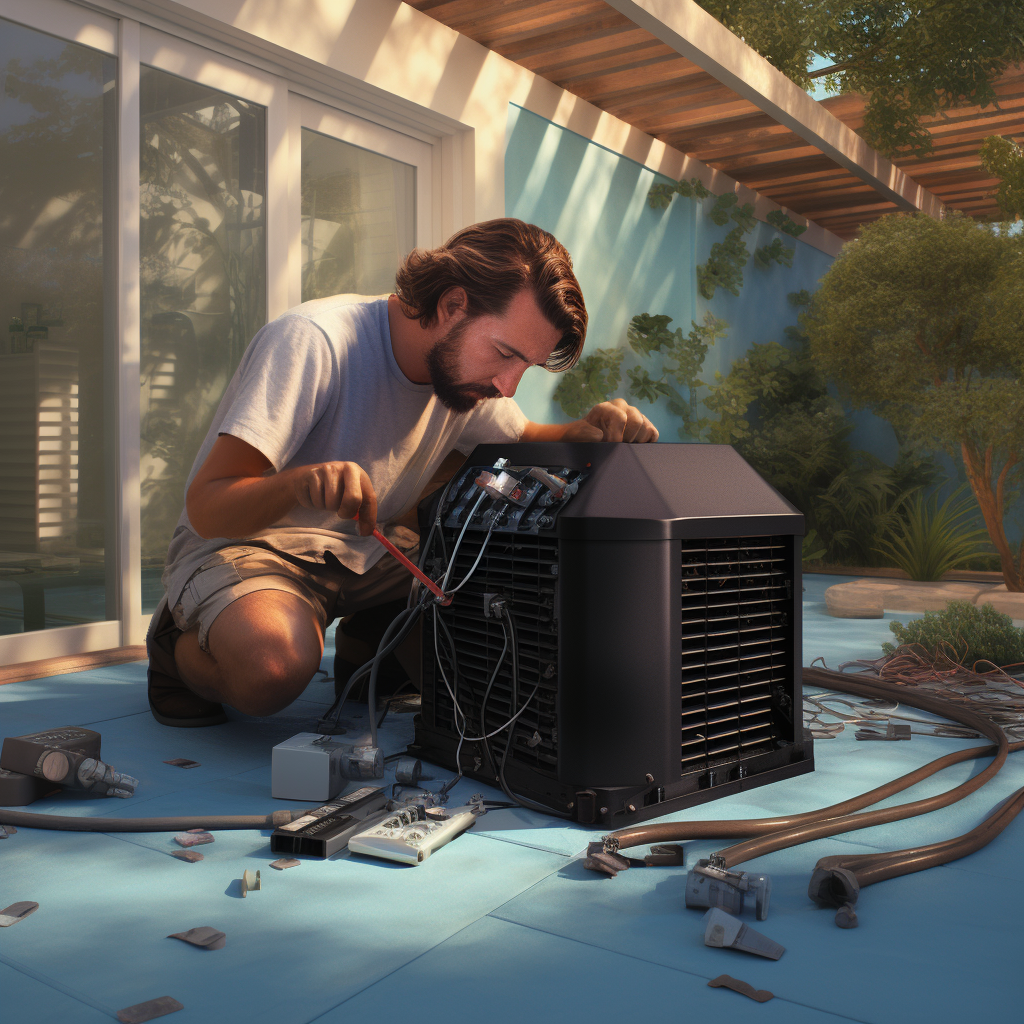
Pool Heater Replacement
Pool Heater Replacement: Ensuring Efficient Heating for Your Pool
Over time, pool heaters may become less efficient, require frequent repairs, or simply reach the end of their lifespan. When this happens, replacing your pool heater becomes necessary to maintain optimal water temperature and enjoyment of your pool. Here’s what you need to know about pool heater replacement:
Common Pool Heater Issues:
If your pool heater is not producing enough heat or no heat at all, several factors could be at play. It could be due to a malfunctioning thermostat, clogged filters, low gas pressure (in gas heaters), or electrical issues (in electric heat pumps).
Signs it’s Time for Replacement:
Age: Most pool heaters have a lifespan of around 10-15 years, depending on factors such as usage, maintenance, and climate. If your heater is nearing or surpassing this age range, it’s likely time for a replacement.
Frequent Repairs: If you find yourself calling for repairs often, it may be more cost-effective to invest in a new heater rather than continuing to patch up an aging one.
Decreased Efficiency: As heaters age, they may become less efficient at heating the pool water, leading to longer heating times and higher energy bills. Upgrading to a newer, more efficient model can save you money in the long run.
Outdated Technology: Older heaters may lack modern features and technology that improve performance and energy efficiency. Upgrading to a newer model can provide enhanced functionality and convenience.
Choosing a Replacement Heater:
When selecting a replacement pool heater, consider the following factors:
Pool Heater: Determine whether you want to stick with the same type of heater (electric heat pump) or explore alternative options based on your needs, budget, and environmental considerations.
Size and Capacity: Ensure the new heater is appropriately sized to meet the heating demands of your pool. Factors such as pool size, climate, and desired temperature affect the heater’s capacity requirements.
Energy Efficiency: Look for ENERGY STAR certified heaters that meet strict energy efficiency guidelines, helping you save on operating costs while reducing your environmental footprint.
Installation Requirements: Consider any installation requirements or modifications needed to accommodate the new heater, such as gas lines, electrical wiring, or space constraints.
Professional Installation:
Pool heater replacement is a job best left to qualified professionals. A certified technician can assess your pool’s heating needs, recommend suitable replacement options, and ensure proper installation and setup for optimal performance and safety.
Cost Considerations:
The cost of pool heater replacement varies depending on factors such as the type of heater, size, features, and installation requirements. While it may require a significant upfront investment, upgrading to a more efficient heater can lead to long-term savings on energy bills and maintenance costs.
Maintenance and Care:
Once your new pool heater is installed, regular maintenance is essential to prolong its lifespan and ensure efficient operation. Follow manufacturer guidelines for upkeep, schedule annual inspections, and address any issues promptly to prevent costly repairs down the line.
By replacing your pool heater when needed and choosing a high-quality, energy-efficient model, you can continue to enjoy comfortable swimming temperatures and extend your pool season for years to come.
Residential Air Conditioning Services
Servicing
Dade County
Broward County
Palm Beach County
305-262-5010
940 SW 51ST AVE MARGATE, FL 33068








